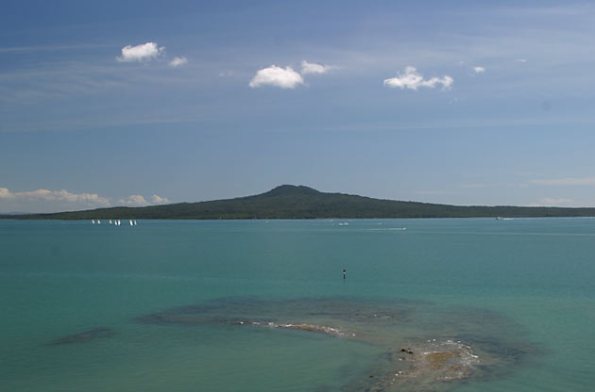Archive
Immigration in the Current Time
Whether you are already residing in New Zealand or are planning a move to New Zealand, you should be aware of the benefits and risks surrounding your application or current permits.
Losing your New Zealand job, as a result of the recession or otherwise may result in you not being eligible to work in another organisation. This can have dire consequences, the worst being that you could face having to leave New Zealand.
A work permit does not carry with it a guarantee for renewal or a guarantee that permanent residency will be granted. A sad fact that some migrants do not completely understand when making the move to New Zealand.
Unemployment in New Zealand is at its highest level since September 2000 with the outlook looking weak until early 2010.
In a July jobs update, http://www.trademe.co.nz highlighted that the number of applications per job advertised had risen by 50 per cent over the past 12 months.
New Zealand welcomes new migrants – people who will contribute to the country by bringing valuable skills or qualifications, setting up a business, or making a financial investment.
So what options are available to you? Immigrants in New Zealand fall broadly into three categories:-
- Those that hold Citizenship
- Those that reside in New Zealand and hold permanent residency
- Those that reside in New Zealand and hold valid work permits
If you currently reside in New Zealand and hold a valid work permit that is about to expire, review your options.
- Are you eligible for permanent residency? If so then this should become your priority. Holding a permanent residency permit places you in a stronger position should you be required to find alternative employment because of downsizing or closing of the organization that sponsored your work permit application.
- Apply for the renewal of your work permit in a timely fashion.
Employers who are unable to find suitable workers in New Zealand and have roles that do not meet the Skilled Migrant or Talent work permit criteria may be able to assist a potential employee in obtaining an Essential Skills work visa or permit. An employer would have to demonstrate that:
- There were no suitable employees in New Zealand.
- They made genuine attempts to attract and recruit New Zealand workers for the positions at the current market salary.
- They provided evidence of advertisements placed, responses received, industry statistics on vacancies and training in place to address shortages.
Work and Income would also be contacted. All of the above takes time, so you need to allow sufficient time when renewing your work permit.
At Quay Law we are often asked to clarify the difference between a visa and a permit? A visa allows a person to travel to the NZ border and a permit allows them to remain in the country. Unless a person has a multiple-entry visa or another single-entry visa, a permit expires when a person leaves the country.
We recommend that you do your homework and consult a professional immigration advisor to ensure that all your requirements pertaining to New Zealand Immigration are adequately addressed. Sometimes this can be as simple as ensuring that your application is completed using the correct application form, a mistake that can cause an unnecessary time delay. Mistakes or shortcuts in this process can have financial and emotional consequences.
For more information on your immigration matters, call Ian Mellett of Quay Law Barrister and Solicitor in confidence.
Contact Details Phone: 09 523-2408
Email: ian.mellett@quaylaw.co.nz
Web: www.quaylaw.co.nz
Web: www.lawyerinauckland.co.nz
Quay Law Legal Blog: www.ianmellett.wordpress.com
Immigration Blog: www.immigratenz.wordpress.com
Skype: Quaylaw
UNAUTHORISED USE. The contents of this article may be subject to copyright, legally privileged and confidential. Any unauthorised use, distribution or copying of the contents is expressly prohibited
Quay Law Business Review
BUSINESS REVIEW – QUAY LAW, AUCKLAND
“What I like about being in my own business is that if I need to make decisions, then I can make them”, Ian tells me of his firm Quay Law.
Ian is friendly and welcoming. He is confident, professional in manner and immediately puts you at ease.
Ian’s law firm is 2 years old (he has practised in New Zealand for nine years) and is situated at the end of the quay near Auckland’s Hilton Hotel. It’s an attractive setting for a business. The calm blue sea outside and view of the harbour bridge provides an ergonomic escape for weary office workers. Refreshment is never far away at the viaduct which is laced with enticing cafes, bars and restaurants in walking distance.
Coming from a legal and tax background at Deloittes in South Africa, Ian has worked hard to re-establish his legal position in New Zealand since arriving from South Africa in 1997. He resigned from his position with Deloittes in Wellington and pursued fulltime study in order to write the New Zealand Law Society Practice and Conversion examinations. He remembers it as being a difficult period where he questioned many times if he had made the right decision. But he’s glad now that he tackled the exams, saying that “Choosing whether to re-qualify in order to stay in your own profession is a personal choice and you need to deal practically with your own situation.”
Quay Law offers many legal advisory services including immigration, residential and commercial conveyancing (buying and selling property), trust and estate planning (encompassing family trusts and wills), estate administration, taxation matters, buying or selling a business, business succession planning, relationship property agreements and general legal advice.
Even if you aren’t considering marriage, there can still be legal complications in New Zealand for long term relationships that you should be aware of. Also many South Africans arriving in New Zealand overlook renewing wills and last testaments. Like Ian says, “It doesn’t have to be a complex document, but it’s an essential one particularly if children are involved”. These are two of many legal issues facing new arrivals in New Zealand, which is why Ian strongly advises seeking legal advice from the beginning.
Ian acknowledges that immigrating to a new country is a daunting prospect, and believes that it is essential to plan your affairs properly. In this regard it is often easier to speak to and deal with someone who has experienced that process and who can provide valuable practical insight when advising you.
He is acutely aware that cost is often an issue, and accordingly focuses on providing appropriate and quality legal advice at affordable prices. Ian is committed to being seen as a professional service provider who does want to help and make a difference, both from a legal and a general settling-in perspective.
Article written by www.linksouthafrica.co.nz
NZ cities more affordable
A fall in the value of the New Zealand dollar has made Auckland and Wellington much cheaper places to live for expatriates working for multinational organisations. Mercer’s worldwide cost of living survey, carried out in March and published today, showed the two New Zealand cities had close to the lowest cost of living out of 143 cities covered. Auckland was in 138th place, from 78th a year earlier, with a cost of living index of 54 compared to 81 in March 2008. The index is based on a figure of 100 for New York. Wellington is one place lower at 139, from 93 a year earlier, and with an index figure of 52.3, down from 77.6 in 2008. Rob Knox of Mercer said the New Zealand cities were “extremely” cost competitive across the Asia Pacific region for global workers, in comparison with places such as Beijing, Hong Kong, Tokyo and Osaka, which all climbed the rankings this year. “This helps make New Zealand a very attractive hub for companies looking to grow their presence in the Asia Pacific region,” he said. The cost of living of New Zealand cities benefited from a fall in the value of the NZ dollar, which at the end of March had depreciated by more than 33 percent against the US dollar from a year earlier. Also in this country’s favour, Mercer’s quality of living survey published in April ranked Auckland 4th in the world and Wellington 12th. Mr Knox said organisations needed to take the quality of living standards into consideration to establish the true “value of living” of a particular location. In Australia, Sydney remains the most expensive city for expatriates, but dropped from 15th to 66th place with a score of 75.5 points. Melbourne was down to 92nd with 69.9 points from 36th, Brisbane fell to 116th with 65.3 points from 57th, Perth fell to 117th with 65.2 points from 53rd, while Adelaide fell to 130th with 61.3 points from 73rd. Overall, Tokyo knocked Moscow off the top spot to become the world’s most expensive city for expatriates. Tokyo with 143.7 points rose from second place in 2008, while second placed Osaka was up from 11th place with 119.2 points. Moscow fell to third with 115.4 points. The most expensive European Union city is Copenhagen, Denmark unchanged from 7th place last year with 105 points, while New York is the most expensive city in the United States moving up to eighth place from 22nd. Bottom of the list is Johannesburg with 49.6 points. The survey measures the comparative cost of more than 200 items in each location, including housing, transport, food, clothing, household goods and entertainment.
NZPA
http://www.stuff.co.nz/business/personal-finance/2571966/NZ-cities-more-affordable




